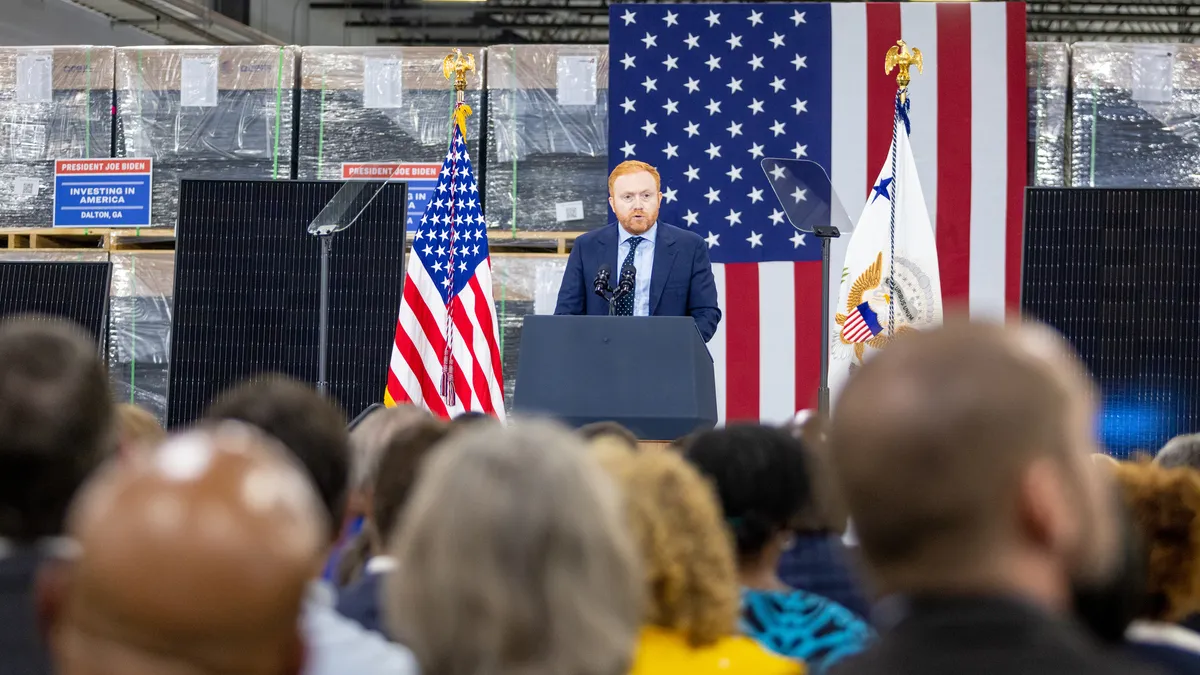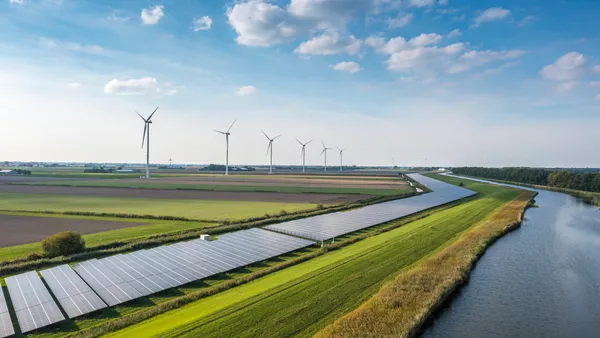The Inflation Reduction Act has spurred investments and partnerships in the renewables industry, including a new commitment between Summit Ridge Energy and Hanwha Q Cells, but the sector is “eagerly awaiting additional clarity,” says a Summit Ridge executive.
Leslie Elder, Summit Ridge’s vice president of political and regulatory affairs, said in an interview the company’s commitment to buy enough solar panels from Qcells to deploy 1.2 GW of community solar was a “natural fit,” as the companies have been working together for years.
The commitment was officially announced on Thursday, when Vice President Kamala Harris visited a Qcells facility in Dalton, Georgia. The company announced in January that it plans to invest $2.5 billion in its domestic manufacturing to build out the U.S. solar supply chain.
“With this expansion that was made possible by the Inflation Reduction Act, being able to work with partners with such integrity is always an important thing,” Elder said. “And anytime that we can promote jobs on American soil, that’s something we would really like to do.”
Elder said the passage of the IRA is a “really good sign” of U.S. commitments to the clean energy industry, but also that a “lot of steps” remain before the law’s full implementation.
“We're still sitting and waiting for some regulations for us to be able to make some of those business decisions,” she said.
The Treasury Department released guidance earlier this week that clarified which areas would qualify for the “energy community” tax break and proposed rules for electric vehicle tax credits. The industry continues to wait for guidance on other aspects of the law.
Solar Energy Industries Association CEO Abigail Ross Hopper said in a release the energy community guidance was welcome and “critical,” but industry is still looking ahead to more information on domestic content, transferability and the manufacturing production tax credit.
“They're not giving us firm deadlines on when things are going to come out, with the exception of the EV piece of it, which they said that they would get out by the end of March – they did do that, which I think is a really beautiful sign,” Elder said. “I think that Treasury is working extremely hard to do comprehensive outreach and try to get this right, which takes more time.”
From industry’s perspective, Elder said, “that doesn't give us the certainty that we want, but we’re willing to work with them and be good partners.”















